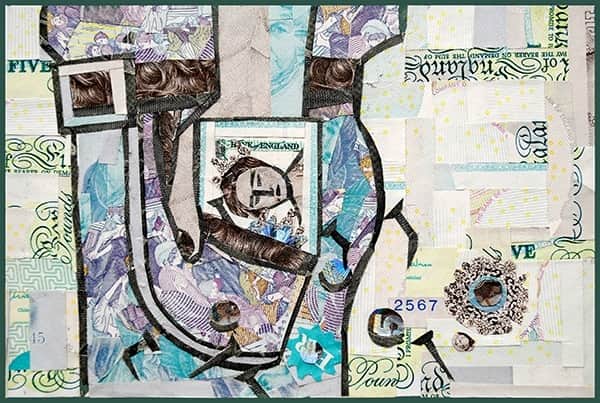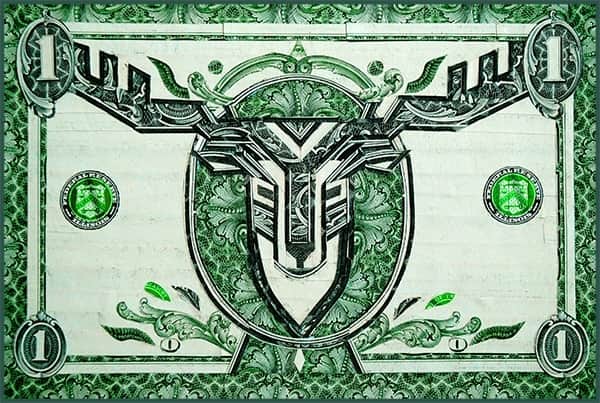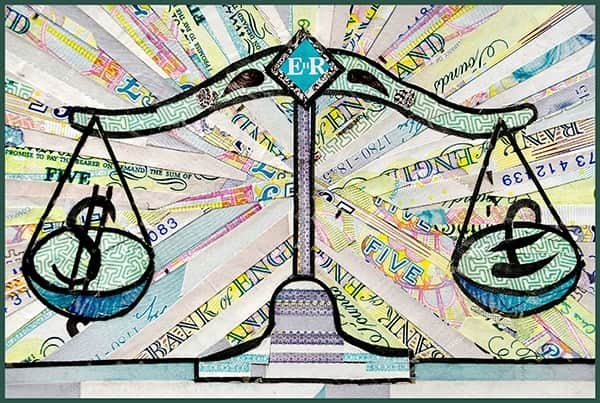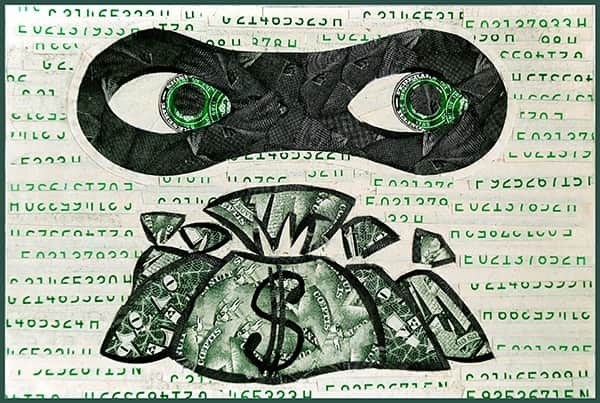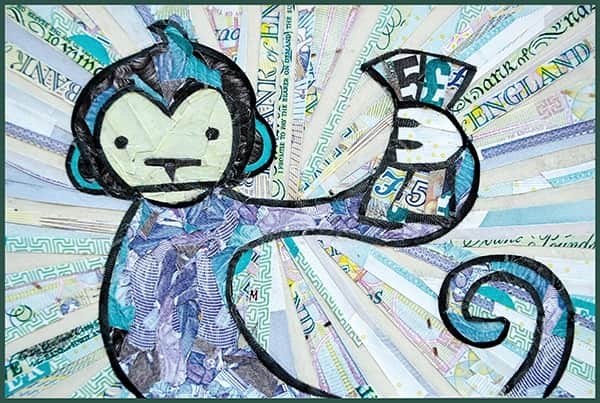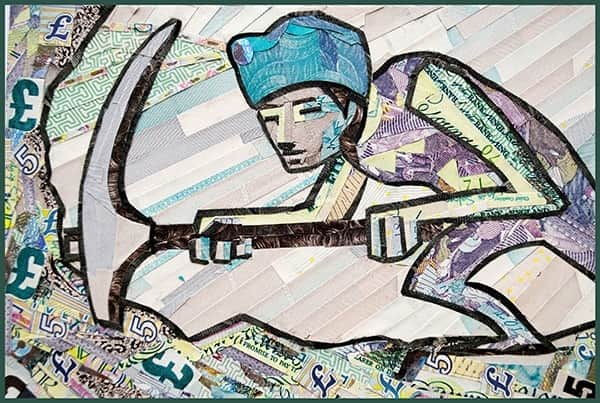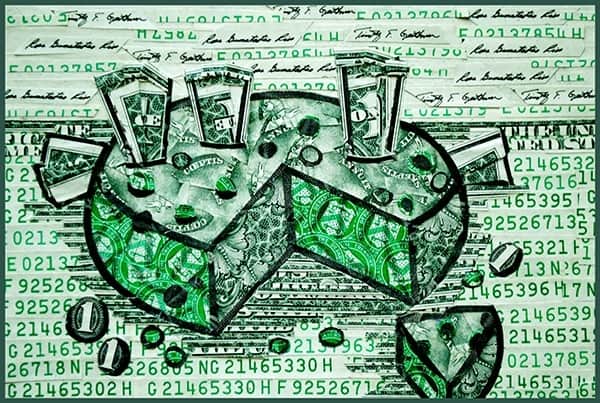Know Your Wonga – British and American Slang Terms for Money Posted by Transparent Language on Dec 10, 2015 in Culture, English Vocabulary
How many slang expressions for money do you know? It turns out there are dozens, and many of them have a fascinating back story. These illustrations, made from actual money by Go Compare and Art Money, capture the origins of these terms in vivid detail. Check out the images and learn how to use these phrases for yourself.
1. Brass
Northern English slang for money
The term “brass” originates from the Northern English towns the early twentieth century, where people made a living from collecting scrap materials. Among the profitable materials was brass, and hence the phrase, “Where there’s muck, there’s brass” and a new slang term for money was born.
Example: “She must have more brass than brains.” (This is a northern English expression meaning “more money than sense”.)
2. Buck
One US dollar
If we go back in time to Pioneer-era America, deer (or “buck”) skins were exchanged for goods and services instead of money. When currency was introduced, the term stuck around and is now a commonly used word for one dollar.
Example: “Six bucks for a coffee? You must be joking.”
3. Quid
One British pound
Across the pond, “quid” is used as a popular slang term for one British pound. It’s said that the phrase originated from the Latin, quid pro quo, meaning “something for something”. Meanwhile, others think it comes from the Gaelic word “chuid”, meaning a portion or a share.
Example: “That ticket must have cost you a few quid.”
4. Boodle
Slang for ill-gotten gains
“Boodle” used to refer to money gained from criminal activity, such as bribes and illicit payments. But now it’s just slang for money in general, on both sides of the Atlantic. The term originated from the Dutch word “bodel”, meaning property.
Example: “We saved a boodle buying a house outside of town.”
5. Monkey
London slang for £500
Why do some Londoners call £500 a “monkey”? The answer can be traced back to 19th Century India, where the 500 rupee note had a picture of an ape on it and was informally known as a “monkey”. As India was under the rule of the British Empire, the term made it over to London, despite the fact there were no monkeys on British currency.
Example: “I only paid a monkey for it.”
6. Wonga
British slang for money
A British slang term for money of Romani origin. The Romani word “wongar” means coal, and “coal” itself was apparently slang for money in 18th and 19th century Britain. This was probably to do with the fact that both were essential commodities for life.
Example: “You’ll earn a lot more wonga in the capital.”
7. Cheese
American slang for money
It may seem strange to hear Americans calling money “cheese”, but actually it makes perfect sense. After the Second World War, the unemployed were given a hearty lump of cheese in their welfare package. Soon, money became known as “cheese”, and nowadays it is even sometimes called “cheddar”.
Example: “I hate my job – it’s time to find somewhere else to get my cheese.”

Build vocabulary, practice pronunciation, and more with Transparent Language Online. Available anytime, anywhere, on any device.
About the Author: Transparent Language
Transparent Language is a leading provider of best-practice language learning software for consumers, government agencies, educational institutions, and businesses. We want everyone to love learning language as much as we do, so we provide a large offering of free resources and social media communities to help you do just that!



